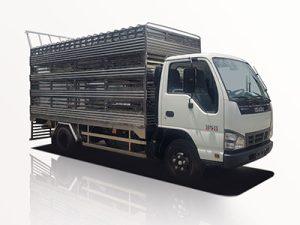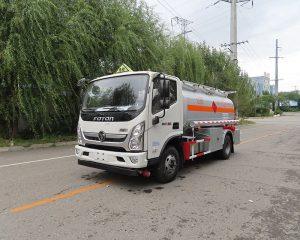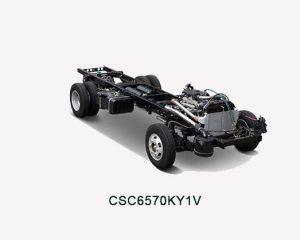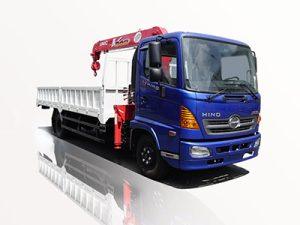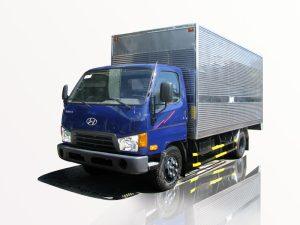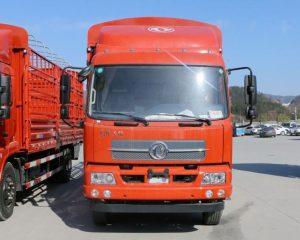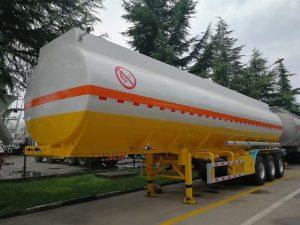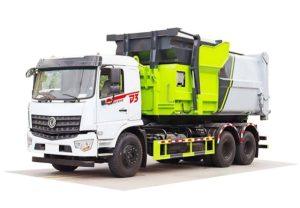Monday to Saturday - 8:00 -17:30
Understanding Military Water Trucks: Essential Tools for Defense Operations
Military operations demand unique logistics solutions, and one of the essential vehicles that meet these requirements is the military water truck. Designed to transport and distribute water in various combat and non-combat situations, these trucks play a pivotal role in maintaining the well-being of troops on the ground. This article aims to explore the various aspects of military water trucks, including their designs, uses, maintenance practices, and advantages.
What is a Military Water Truck?
A military water truck is a specialized vehicle equipped to transport potable (drinkable) and non-potable water to support military operations. These trucks are designed to be rugged and durable, capable of operating in harsh environments while delivering water efficiently and safely to the front lines or base camps.
Key Features of Military Water Trucks
- Tank Capacity: These trucks typically have large tank capacities, ranging from 1,000 to 5,000 gallons, depending on the model and mission needs.
- Durability: Constructed with robust materials, military water trucks are built to withstand rough terrains and adverse weather conditions.
- Versatile Distribution: Equipped with pumps and hoses, military water trucks can distribute water for various uses, including drinking, sanitation, and fire suppression.
- Maneuverability: These trucks often feature off-road capabilities to navigate challenging terrains, which is crucial for military operations.
Types of Military Water Trucks
1. Tactical Water Trucks
Tactical water trucks are light to medium-duty vehicles designed for quick missions. They are agile and can operate in combat zones, delivering water to troops quickly and effectively.
2. Heavy-Duty Water Supply Trucks
Heavy-duty models are designed for larger volumes of water transport and are often deployed in support operations, base camps, or during humanitarian missions.
3. Multi-Purpose Vehicles
These trucks are equipped with additional features, allowing them to serve multiple purposes beyond just water transportation, including firefighting or fuel transportation.
Operational Uses of Military Water Trucks
1. Drinking Water Supply
One of the primary functions of military water trucks is to deliver clean drinking water to troops stationed in remote locations. Ensuring access to potable water is vital for hydration and overall troop health.
2. Sanitation and Hygiene
Military operations often occur in environments where sanitation facilities are limited. Water trucks provide necessary hygiene support, allowing for basic sanitation needs such as bathing and laundry.
3. Cooling Systems for Equipment
In hot climates, military equipment and machinery require cooling. Water trucks can supply water for cooling systems in vehicles and machinery, preventing overheating.
4. Firefighting Support
Military water trucks can be used in firefighting efforts, assisting in controlling fires that may occur in training or combat areas. They are also essential during natural disasters.
Design Considerations for Military Water Trucks
1. Tank Material
The tank material must be durable, resistant to corrosion, and safe for storing potable water. Common materials include stainless steel and reinforced plastics.
2. Pumping and Distribution Systems
A well-designed pumping system is essential for efficient water distribution. Most military water trucks feature powerful pumps capable of moving water quickly through hoses or nozzles.
3. Adaptability for Different Missions
A flexible design that allows quick modifications can enhance the effectiveness of military water trucks across varied operational contexts.
Maintenance and Care for Military Water Trucks
1. Regular Inspections
To ensure performance and safety, military water trucks require regular inspections focusing on tires, brakes, pumps, and tank integrity.
2. Cleaning Procedures
For trucks transporting potable water, it is crucial to implement rigorous cleaning procedures to prevent contamination. Tanks should be routinely sanitized, usually using chlorine solutions.
3. Record Keeping
Maintaining detailed records of maintenance and repairs can help commanders make informed decisions regarding vehicle readiness and longevity.
Advantages of Military Water Trucks
1. Flexibility in Operations
Military water trucks provide the flexibility to respond quickly to changing operational demands, ensuring water is available where it is needed most.
2. Enhanced Soldier Morale
Access to fresh water significantly boosts soldier morale, impacting their performance and readiness positively.
3. Support for Humanitarian Aid
Military water trucks play a crucial role in humanitarian missions, providing essential water supplies in disaster-stricken areas.
Challenges Facing Military Water Trucks
1. Environmental Conditions
Operating in extreme environments can lead to wear and tear on machinery. They may encounter sand, mud, or icy conditions, which can affect performance.
2. Logistics Coordination
Coordinating water delivery in military operations can be complex, requiring precise planning and real-time adjustments based on mission needs.
3. Security Threats
Water trucks can be targets in conflict zones, requiring additional measures for securing the vehicles and the supplies they carry.
Practical Examples of Military Water Truck Applications
1. Operation Desert Storm
During Operation Desert Storm, military water trucks were vital in providing essential water supplies for troops stationed in arid regions.
2. Humanitarian Aid Efforts
Military water trucks have also been deployed in various humanitarian missions, providing clean water supplies during natural disasters, such as earthquakes and floods.
3. Joint Training Exercises
Water trucks are utilized in joint training exercises to simulate logistic operations, providing military personnel experience in water distribution in support of large-scale maneuvers.
Frequently Asked Questions (FAQs)
1. How much water can a military water truck carry?
Military water trucks can carry a range of water capacities from 1,000 to 5,000 gallons, depending on the specific model and mission requirements.
2. Are military water trucks used in peacetime?
Yes, military water trucks are often used in peacetime for training exercises, disaster response, and humanitarian aid missions.
3. What materials are used to construct military water truck tanks?
Tanks are typically made from durable materials such as stainless steel or reinforced plastics that ensure safe water storage and transport.
4. How do military water trucks ensure water quality?
Military water trucks implement stringent cleaning and sanitization procedures to maintain potable water quality, including regular inspections and sanitation with chlorine solutions.
5. What is the role of military water trucks in humanitarian missions?
Military water trucks provide essential water supplies in disaster-stricken areas, helping meet the immediate needs of affected populations during humanitarian crises.
6. Can military water trucks operate off-road?
Yes, many military water trucks are designed with off-road capabilities, allowing them to navigate challenging terrains often found in military operational areas.


